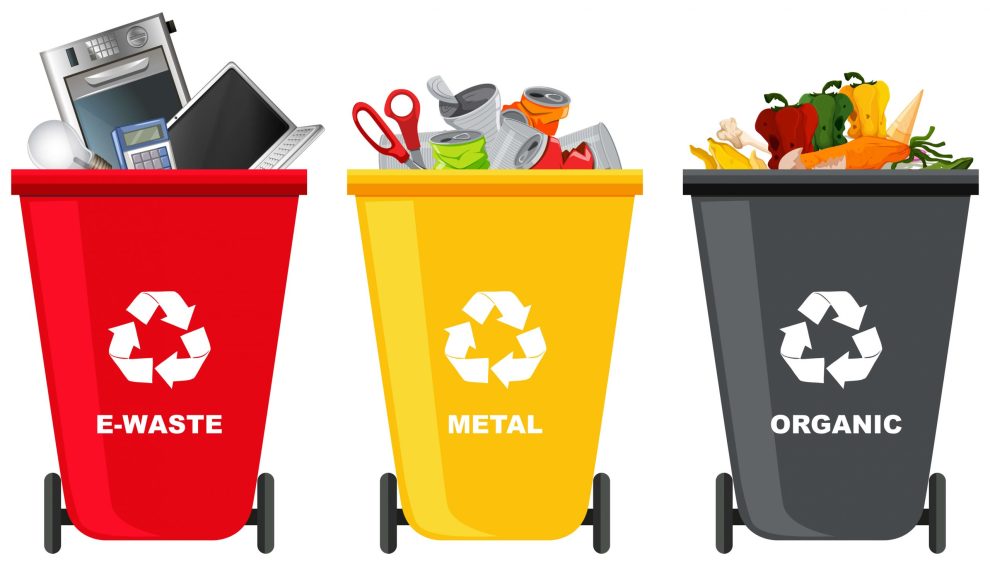What are the guidelines for classification of domestic solid waste in Vietnam? What are the penalties for not classifying household waste in Vietnam? - Thu Lien (Dong Thap, Vietnam)

Guidelines for classification of domestic solid waste in Vietnam (Internet image)
Regarding this issue, LawNet would like to answer as follows:
1. Guidelines for classification of domestic solid waste in Vietnam
Article 75 of the Law on Environmental Protection 2020 stipulates that domestic waste generated by households and individuals is classified as:
- Reusable and recyclable solid waste;
- Food waste;
- Other domestic solid waste.
Provincial People’s Committees shall to classify other domestic solid waste. within their provinces under the guidance of the Ministry of Natural Resources and Environment; introduce policies to encourage the classification of hazardous waste present in domestic solid waste generated by households and individuals.
|
Note: - Households and individuals in urban areas must contain the domestic solid waste already classified above in packages for transfer as follows: + Reusable and recyclable solid waste shall be transferred to entities for reuse and recycling or facilities licensed for collection and transport of domestic solid waste; + Food waste and other domestic solid waste must be contained in packages as prescribed and transferred to facilities licensed for collection and transport of domestic solid waste; food waste may be used as organic fertilizers and animal feeds. - Households and individuals in rural areas that generate domestic solid waste and classify them as prescribed above shall manage them as follows: + Households and individuals are encouraged to make the most of waste food to be used as organic fertilizers and animal feeds; + Reusable and recyclable solid waste shall be transferred to entities for reuse and recycling or facilities licensed for collection and transport of domestic solid waste; + If not used as reusable and recyclable solid waste, food waste shall be transferred to or facilities licensed for collection and transport of domestic solid waste; + Other domestic solid waste must be contained in packages as prescribed and transferred to facilities licensed for collection and transport of domestic solid waste. - Households and individuals in rural areas that produce domestic solid waste shall classify, contain and transfer domestic solid waste. - The classification, collection, transport and treatment of bulky waste shall comply with regulations imposed by provincial People’s Committees. - The Vietnamese Fatherland Front Committee and socio-political organizations at all levels shall encourage residential communities, households and individuals to classify domestic solid waste at source. Internal residential communities and socio-political organizations shall supervise the classification of domestic solid waste by households and individuals. |
2. What are the penalties for not classifying household waste in Vietnam?
According to Clause 1, Article 26 of Decree 45/2022/ND-CP, a fine ranging from VND 500,000 to VND 1,000,000 shall be imposed upon a household or individual that fails to classify domestic solid waste in accordance with regulations; fails to use packaging that contains domestic solid waste as prescribed.
3. Facilities collecting and transporting domestic solid waste's right to refuse to collect and transport domestic solid waste that is not classified in Vietnam
Specifically, Clause 2, Article 77 of the Law on Environmental Protection 2020 stipulates that facilities collecting and transporting domestic solid waste are entitled to refuse to collect and transport households and individuals’ domestic solid waste that is not classified or contained in inappropriate packages and notify competent authorities as prescribed by law, except for the case where households and individuals use packages intended for other domestic solid waste as prescribed in Point c Clause 1 Article 75 of the Law on Environmental Protection 2020.
Simultaneously, facilities collecting and transporting domestic solid waste shall cooperate with communal People’s Committees, residential communities and representatives of residential areas in determining time, places, frequency and routes for collecting domestic solid waste, and make them publicly available.
Nhu Mai
 Article table of contents
Article table of contents





.Medium.png)
.Medium.png)
.Medium.png)
.Medium.png)
